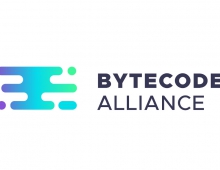
Mozilla And Tsinghua University Develop IPv6 Browser
Chinese Tsinghua University and Mozilla China have jointly developed a new Internet browser product specially designed for IPv6.
The browser is based on the core of Mozilla's Firefox browser and offers access to some IPV6 services, as well as in Google and Facebook.
Internet Protocol Version 6 (IPv6) is a version of the Internet Protocol that is designed to succeed Internet Protocol version 4 (IPv4).
The China Tech News web site reports that the new browser uses IPv6 tunnel technologies in order to offer smooth access to these services. In order to reach the IPv6 Internet, an isolated host or network must use the existing IPv4 infrastructure to carry IPv6 packets. This is done using a technique known as tunneling which consists of encapsulating IPv6 packets within IPv4, in effect using IPv4 as a link layer for IPv6.
Facebook, at the present moment, is blocked in most areas of China. At present, this browser mainly targets the campus network of Tsinghua University with initial V1.0.6 version.
IPv6 is an Internet Layer protocol for packet-switched internetworking and provides end-to-end datagram transmission across multiple IP networks. The main driving force for the redesign of Internet Protocol was the foreseeable IPv4 address exhaustion.
IPv6 uses a 128-bit address, whereas IPv4 uses only 32 bits. This expansion provides considerable flexibility in allocating addresses and routing traffic. It also eliminates the primary need for network address translation (NAT), which gained widespread deployment as an effort to alleviate IPv4 address exhaustion.
IPv6 also implements many other new features. It simplifies aspects of address assignment (stateless address autoconfiguration) and network renumbering (prefix and router announcements) when changing Internet connectivity providers. The IPv6 subnet size has been standardized by fixing the size of the host identifier portion of an address to 64 bits to facilitate an automatic mechanism for forming the host identifier from Link Layer media addressing information (MAC address). Network security is also integrated into the design of the IPv6 architecture, and the IPv6 specification mandates support for IPsec as a fundamental interoperability requirement.
Internet Protocol Version 6 (IPv6) is a version of the Internet Protocol that is designed to succeed Internet Protocol version 4 (IPv4).
The China Tech News web site reports that the new browser uses IPv6 tunnel technologies in order to offer smooth access to these services. In order to reach the IPv6 Internet, an isolated host or network must use the existing IPv4 infrastructure to carry IPv6 packets. This is done using a technique known as tunneling which consists of encapsulating IPv6 packets within IPv4, in effect using IPv4 as a link layer for IPv6.
Facebook, at the present moment, is blocked in most areas of China. At present, this browser mainly targets the campus network of Tsinghua University with initial V1.0.6 version.
IPv6 is an Internet Layer protocol for packet-switched internetworking and provides end-to-end datagram transmission across multiple IP networks. The main driving force for the redesign of Internet Protocol was the foreseeable IPv4 address exhaustion.
IPv6 uses a 128-bit address, whereas IPv4 uses only 32 bits. This expansion provides considerable flexibility in allocating addresses and routing traffic. It also eliminates the primary need for network address translation (NAT), which gained widespread deployment as an effort to alleviate IPv4 address exhaustion.
IPv6 also implements many other new features. It simplifies aspects of address assignment (stateless address autoconfiguration) and network renumbering (prefix and router announcements) when changing Internet connectivity providers. The IPv6 subnet size has been standardized by fixing the size of the host identifier portion of an address to 64 bits to facilitate an automatic mechanism for forming the host identifier from Link Layer media addressing information (MAC address). Network security is also integrated into the design of the IPv6 architecture, and the IPv6 specification mandates support for IPsec as a fundamental interoperability requirement.





















